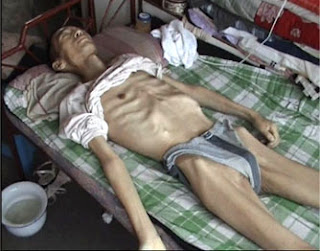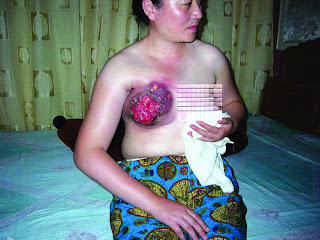Radio Katwe has just received information that the CMI, Uganda's Military Intelligence, has began a campaign to intercept phone calls from abroad into Uganda, as a way of gathering intelligence on what the Ugandan Diaspora is thinking and saying.
A Radio Katwe informer said that the tapping of the phones, using Canadian-made equipment, is taking place at the building across the road from State House called Okello House.
State House owns Okello House and it is the electronic and communications centre of CMI.
The main offices of CMI at Kitante Courts near the Mulago roundabout and opposite the Ministry of Health headquarters are used as an intelligence gathering centre.
That is where the Chief of Military Intelligence and his staff sit. That is also where CMI operatives come in to deliver intelligence reports, receive briefings, and leave on operations.
Many Ugandans also believe that the tapping of Ugandan phones is done using the facilities of the South African mobile phone giant MTN at its switching centre in Bugolobi outside Kampala.
How are phones tapped and who does intelligence listen in on?
Through a local MTN Uganda director, Charles, State House made sure that when MTN was starting its operations in 1998 in Uganda, MTN committed at least one of its employees to work with a CMI engineer who sits at MTN's Bugolobi switching centre.
MTN is the largest mobile phone provider in Uganda, so it is the one where much of the intelligence attention is given.
Currently, CMI can only tap and record 12 lines at a time. This is what they term a "Level 1" report.
Every two days, the recorded phone calls are taken to CMI headquarters at Kitante where they are tallied manually by a sorting team to search for call patterns and filtering for most suspected calls on these computer print outs.
The UTL-Mango network is the second most subscribed to service and is owned by the First Family, with partners like Kampala Casino boss Bob Kabonero and others.
CMI systems engineers sit at switchboards and generate Level 1 reports to the same sorting team at CMI headquarters.
Celtel is the smallest mobile phone network. As of 2005, no CMI engineer was sitting at the Celtel House operations switchboard. CMI, however, requests special reports from Celtel once in a while.
The Civic Communications Monitoring (CCM) section of CMI monitors the mobile and fixed phone traffic in Uganda.
The CCM section at CMI is made up of 12 students from Makerere University, all of whom are Bahima from Nyabushozi county in Mbarara.
Then there is a Calling Team made up of two boys and two girls. These are stationed there to place calls to certain people, to try and identify and interest them using tricks and fake stories.
The third team is the Tracking Team, made up of two people who man the machine that tracks and records conversations of any 12 high risk telephones.
Then there is a fourth group, the Communications Engineers, which is made up of five people who sit at the network operators switch boards and filter from the calling log all foreign and domestic Level 1 reports to be sent to the sorting team.
At present, the countries where CMI and by extension State House has the greatest interest in are Rwanda, South Africa, Kenya, Britain, Sweden, the United States, and Japan, in that order of priority.
A "Level 2" report is based on phone calls from countries of main interest and are selected on the basis of the following: (a) How often in a week has a foreign number called? Anything more than three times a week is picked up and followed (b) What time of the day is the foreign number calling? Interest is taken in numbers that call to Uganda at late Ugandan time hours. (c) Where is a foreign number calling to which area of the country? A foreign number calling politically sensitive parts of Uganda like Gulu, Kitgum, and Kizza Besigye's home area of Rukungiri are made into a "Level 2" report.
The "Level 3" report, category A is about phone numbers from a database that has been created and is constantly being updated.
Category A number are numbers of high damage risk personalities that have been compiled clandestinely (without owners knowing from friends and relatives of the suspect being monitored).
Currently the "Level 3, Category A" comprises all army officers from the rank of Lieutenant to General, all vocal anti-NRM opposition Members of Parliament, all police officers from the rank of Assistant Inspector of Police to Inspector General of Police, all cabinet ministers and all key media editors and reporters, and all major players and officials in the Buganda kingdom.
Any foreign number that calls Category A is picked and put in the "Level 3" report for monitoring.
One expert advised that one of the possible ways of realizing that your phone is tapped is when you are speaking and you hear too much noise echoing in the background or you hear your voice own bouncing back as a pronounced echo. But these are of course not 100% reliable methods.
Since Radio Katwe began publishing highly secret and sensitive information on the Museveni regime and since the site was blocked in Uganda last month, the Ugandan Diaspora has been reading things which most of them did not know about and things they would have dismissed as fiction and lies only recently like in 2005.
State House, using the CMI phone tapping facility, is trying to gauge how this new perception of Museveni as a dangerous, manipulative, and scandalous leader is influencing the Ugandan Diaspora and the diplomatic corps based in Uganda.
But as we caution Ugandans at home and abroad to be cautious in what they say during these international phone calls, we can also reveal that the tapping of phones is a very cumbersome and costly process.
It is not possible to tap all of MTN's 700,000 subscribers. The best they can do is tap a few selected phones at a time.
But the word here is, Ugandans should just take additional precautions, just to be on the safe side.
If you are in Uganda, a quick, easy way to beat the Radio Katwe.com blockade is to use any of the hundreds of proxy websites or servers like
http://anonymouse.org/ , Click on English, enter
http://www.radiokatwe.com/ in the space for the url and logon. NOTE: Some functions like Email this story or send a comment might not work properly when using proxies. In that case, use anonymous email
http://anonymouse.org/anonemail.html to send your comment to Radio Katwe.com at editor@radiokatwe.com









